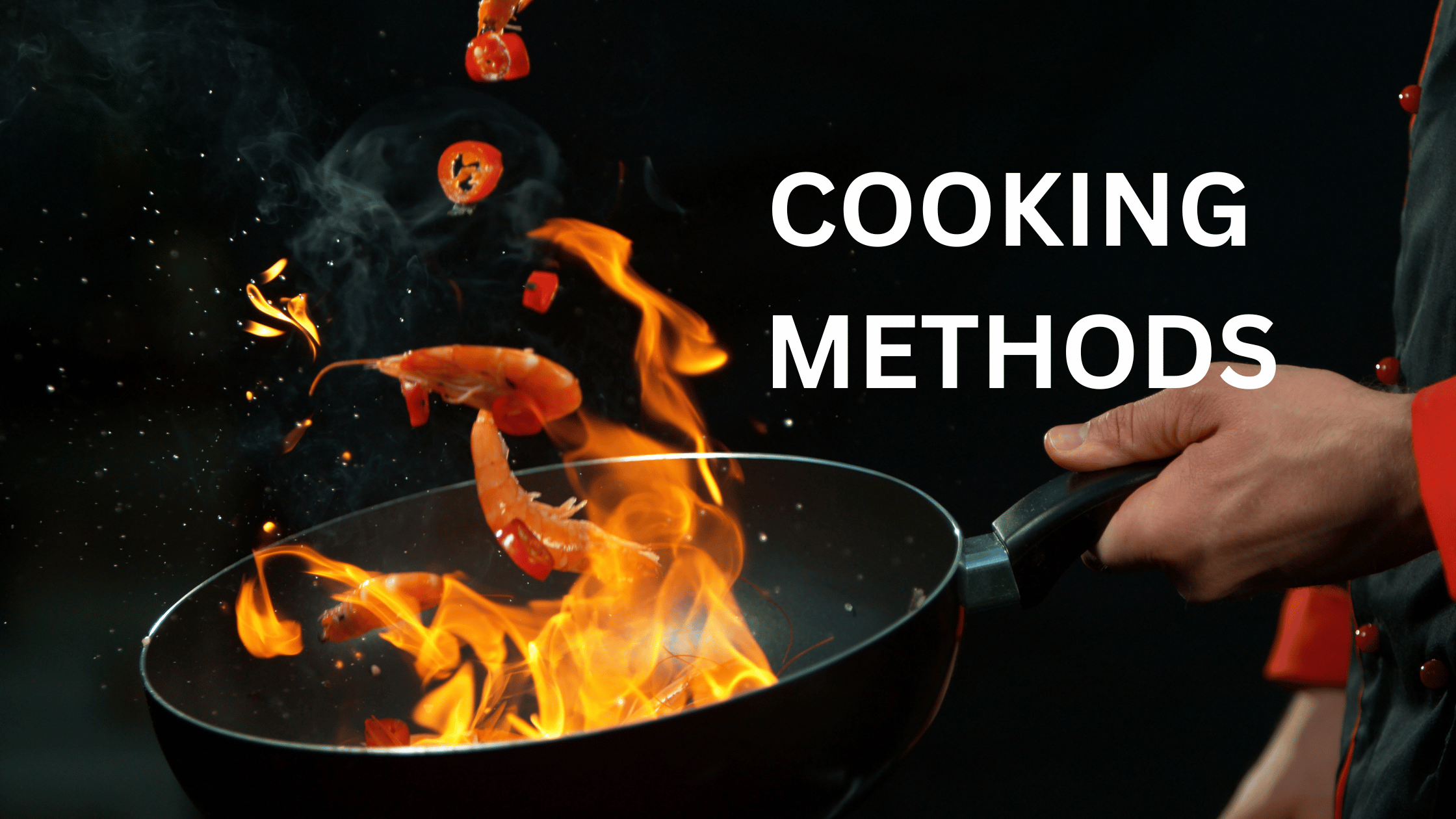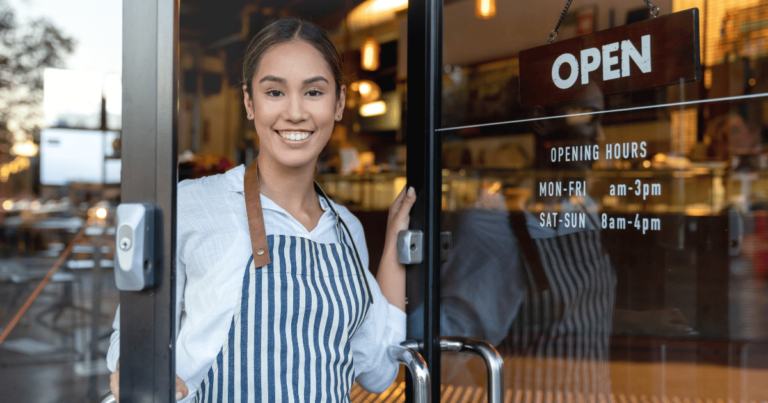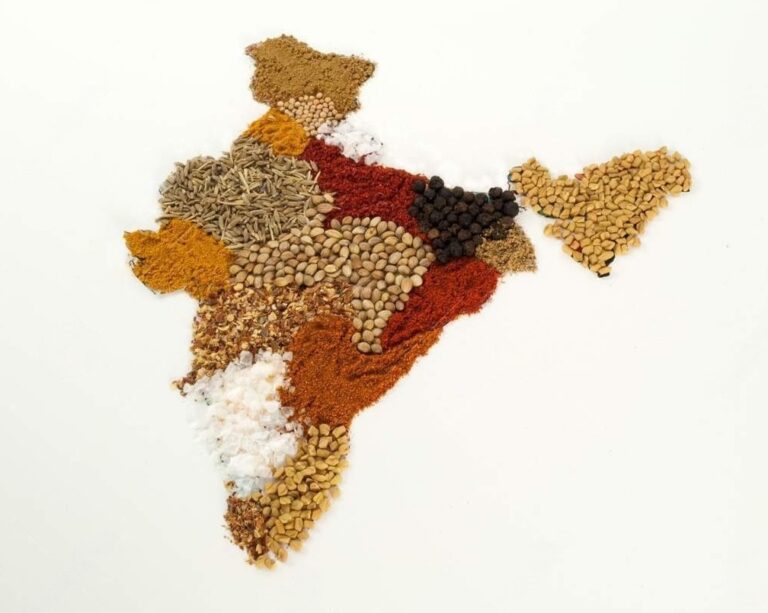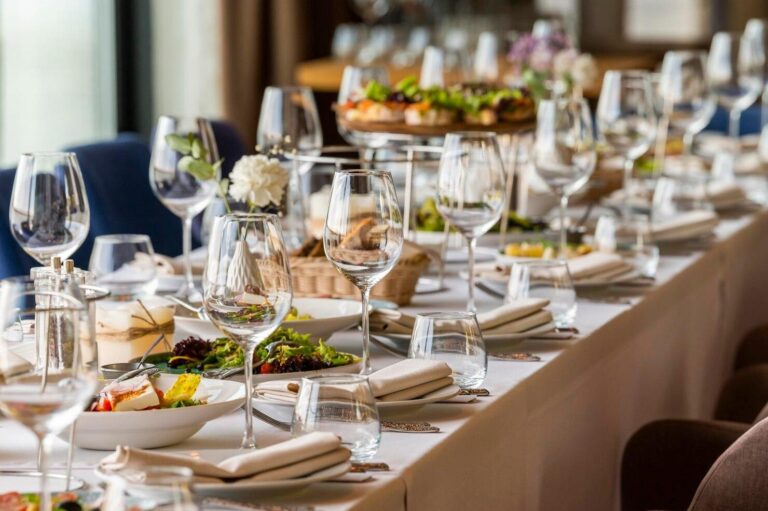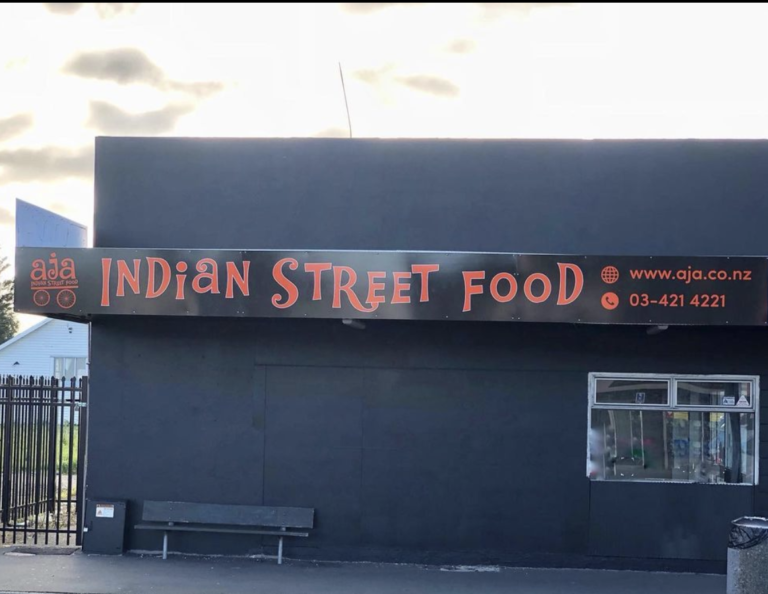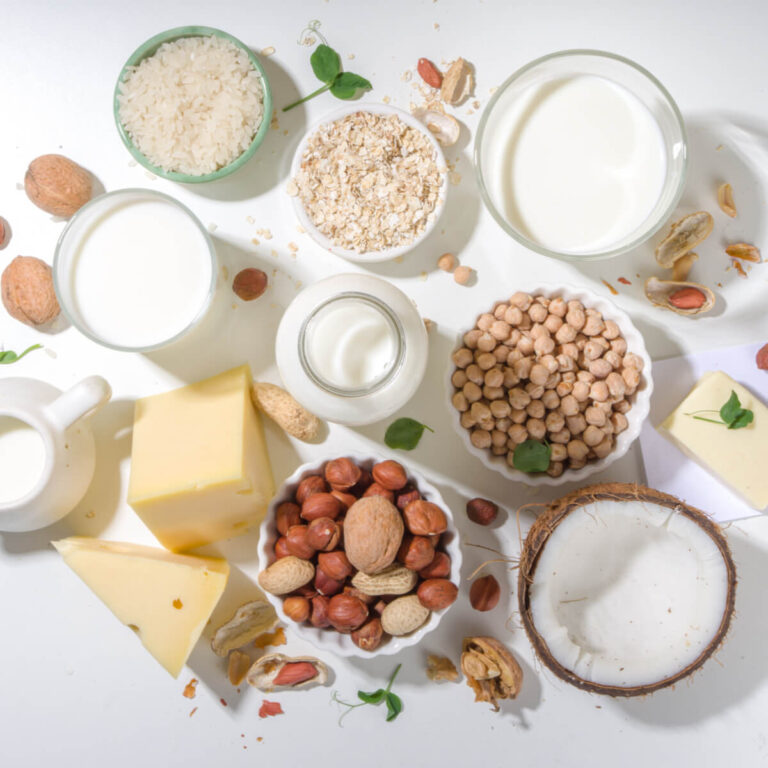Cooking Methods for Delicious Dishes
Cooking Methods, In the world of culinary arts various cooking methods an essential skills for any chef. These techniques not only define the flavors and textures of a dish but also allow for creativity and innovation in the kitchen. In this comprehensive guide, we’ll delve into the three categories of cooking methods: dry, moist, and mixed. We’ll explore what each method entails, and the best foods for these processes, provide examples of dishes, offer tips and tricks, and conclude with a glossary of culinary terms. Let’s embark on a culinary journey through the world of cooking methods.
Dry Cooking Methods
Sous Vide
What is Sous Vide?
Sous vide is a precision cooking method that involves sealing food in an airtight bag and cooking it in a water bath at a precise temperature. This ensures consistent results and enhances the natural flavors.
Best Foods for Sous Vide:
- Steak
- Salmon
- Chicken breast
Examples of Dishes:
- Sous Vide Ribeye Steak
- Sous Vide Salmon with Lemon Dill Sauce
Tips and Tricks:
- Use a vacuum sealer to ensure airtight seals.
- Experiment with different temperatures for varied textures.
- Sear the food post-sous vide for a delightful crust.
Grilling Cooking Methods
What is Grilling?
Grilling is a method where food is cooked directly over an open flame or on a grill grate. It adds a smokey flavor as well as lovely grill marks.
Best Foods for Grilling:
- Burgers
- Vegetables
- Shrimp
Examples of Dishes:
- Grilled Chicken Skewers
- BBQ Ribs
Tips and Tricks:
- Preheat the grill for even cooking.
- Oil the grates to prevent sticking.
- Let meat rest after grilling for juicier results.
Roasting Cooking Methods
What is Roasting?
Roasting involves cooking food in an oven, surrounded by dry heat. This method is perfect for achieving caramelization and tenderness.
Best Foods for Roasting:
- Whole chickens
- Root vegetables
- Turkey
Examples of Dishes:
- Roast Chicken with Herbs
- Roasted Butternut Squash
Tips and Tricks:
- Use a roasting rack for even airflow.
- Baste the food to keep it moist.
- Let the meat rest before carving for juiciness.
Moist Cooking Methods
Poaching
What is Poaching?
Poaching is a gentle cooking method where food is submerged in a simmering liquid. It’s great for delicate items and infusing flavors.
Best Foods for Poaching:
- Eggs
- Salmon fillets
- Pears
Examples of Dishes:
- Poached Eggs Benedict
- Poached Salmon in White Wine
Tips and Tricks:
- Maintain a low simmer to prevent overcooking.
- Add aromatics like herbs and citrus for flavor.
- Use a wide, shallow pan for even poaching.
Simmering
What is Simmering?
Simmering involves cooking food in a liquid just below the boiling point. It’s ideal for tenderizing and developing complex flavors.
Best Foods for Simmering:
- Soups
- Stews
- Pasta sauces
Examples of Dishes:
- Beef Stew
- Tomato Basil Marinara
Tips and Tricks:
- For even heat dispersion, use a heavy-bottomed saucepan.
- Skim the surface to remove impurities.
- Simmer uncovered to reduce and thicken sauces.
Boiling
What is Boiling?
Boiling is a vigorous cooking method where food is submerged in rapidly boiling water. It’s great for quick cooking and sterilization.
Best Foods for Boiling:
- Pasta
- Eggs
- Vegetables
Examples of Dishes:
- Boiled Lobster
- Boiled Corn on the Cob
Tips and Tricks:
- Salt the water for seasoning.
- Use a rolling boil for pasta.
- Shock vegetables in ice water to retain color and crispness.
Mixed Cooking Methods
Baking
What is Baking?
Baking uses dry heat in an enclosed space, like an oven, and can be applied to both sweet and savory dishes. It results in a delightful texture.
Best Foods for Baking:
- Bread
- Cakes
- Casseroles
Examples of Dishes:
- Sourdough Bread
- Chocolate Cake
Tips and Tricks:
- Use an oven thermometer for accuracy.
- Rotate the pans for even baking.
- Cool baked goods on a wire rack to prevent sogginess.
Sauteing Cooking Methods
What is Sauteing?
Sauteing is the fast frying of food in a tiny amount of oil or butter over high heat. It’s perfect for preserving the natural flavors and textures of ingredients.
Best Foods for Sauteing:
- Shrimp
- Mushrooms
- Thinly sliced meats
Examples of Dishes:
- Shrimp Scampi
- Sauteed Spinach
Tips and Tricks:
- Use a pan with a flat bottom for even cooking.
- Don’t overcrowd the pan.
- Keep ingredients moving to prevent burning.
Frying Cooking Methods
What is Frying?
Frying immerses food in hot oil, creating a crispy exterior. There are two types: deep frying (submerging food) and shallow frying (pan-frying).
Best Foods for Frying:
- French fries
- Fried chicken
- Tempura vegetables
Examples of Dishes:
- Crispy French Fries
- Buttermilk Fried Chicken
Tips and Tricks:
- Maintain the oil temperature for crispy results.
- Drain fried items on paper towels to remove excess oil.
- Use a batter or breading for extra crunch.
Glossary of Cooking Terms
Deglaze: The process of adding liquid to a pan to loosen and incorporate browned bits, enhancing flavor.
Emulsify: To blend two or more immiscible liquids, like oil and vinegar, into a smooth, consistent mixture.
Au Gratin: A cooking technique where a dish is topped with breadcrumbs and cheese, then browned in the oven.
Blanch: Briefly boiling food, then immediately cooling it in ice water to halt cooking.
Deglaze: The process of adding liquid to a pan to loosen and incorporate browned bits, enhancing flavor.
Confit: A cooking method where food is slowly cooked in fat at a low temperature, often used for preserving.
Coulis: A thick sauce made from pureed fruits or vegetables, often used as a garnish or drizzle.
Jus: The natural juice or liquid released from cooking meat, often used as a sauce or gravy.
Conclusion
In conclusion, the world of culinary arts is a vast, exciting, and endlessly creative landscape, and at the heart of it all are the various cooking methods. We have explored the three primary categories: dry, moist, and mixed cooking techniques, each offering a unique way to transform ingredients into delightful dishes.
Dry methods like grilling, roasting, and sautéing bring out exquisite flavors and textures, often accentuated by the caramelization that results from high heat. Moist methods such as poaching, simmering, and boiling showcase the importance of gentle cooking in retaining tenderness and infusing flavors.
Mixed methods, including baking, frying, and confit, allow for endless possibilities, creating dishes that range from crunchy and crispy to tender and succulent. By mastering these techniques, chefs can craft culinary masterpieces that delight the palate and tantalize the senses.
As you embark on your own culinary journey, remember the importance of precision, creativity, and experimentation. These cooking methods serve as your artistic tools, and the best dishes are often born from a fusion of methods and a dash of innovation.
So, whether you’re a seasoned chef or an enthusiastic home cook, the world of culinary arts invites you to explore, discover, and savor the endless possibilities of flavors, textures, and experiences it has to offer. Bon appétit!
